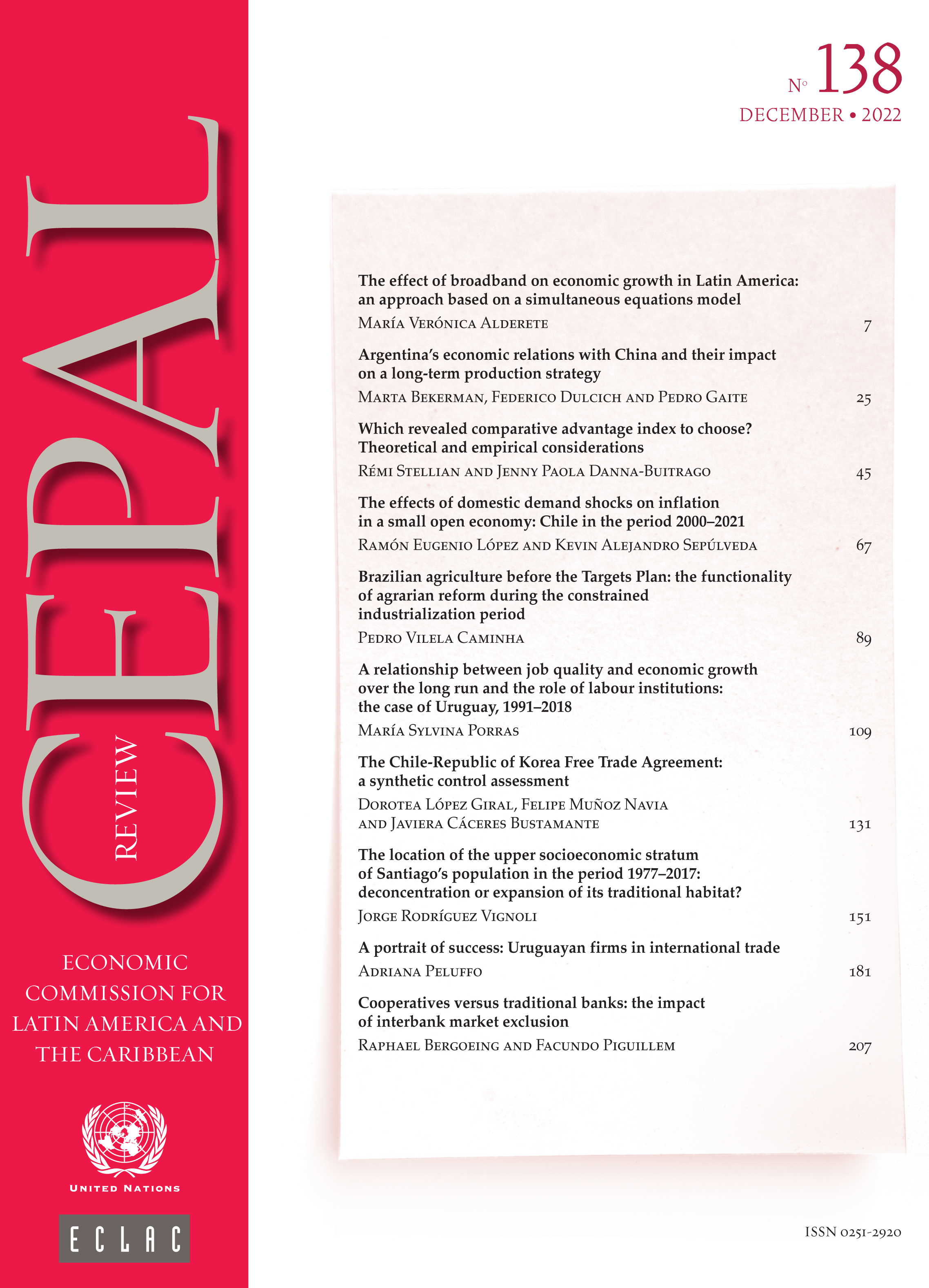-
The Chile-Republic of Korea Free Trade Agreement: a synthetic control assessment
- Source: CEPAL Review, Volume 2022, Issue 138, Dec 2022, p. 131 - 150
- Spanish
-
- 28 Dec 2022
Abstract
In 2003, Chile and the Republic of Korea signed the first trans-Pacific free trade agreement (FTA). The two countries’ objectives differed. Chile sought to increase, diversify, and add value to its exports, while the Republic of Korea had the political economy-driven goal of initiating preferential liberalization negotiations, and Chile was seen as an ideal candidate for exploring this path. This paper focuses on the Chilean objectives behind the signing of the Chile-Republic of Korea FTA and therefore considers its effects on Chilean exports. Synthetic control methods are used to assess the impact of the Agreement on exports, in terms of value and number of products. As an extension, the impact of the Agreement on the intensive and extensive margins of Chilean exports to the Republic of Korea is analysed. While the Agreement is found to have had a positive impact on Chilean exports, this effect is non-significant for newly exported products.





